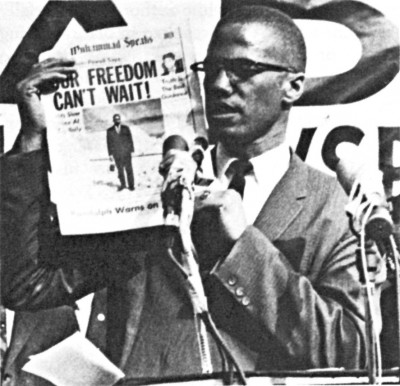A Lost Piece of Jazz History

Sponsored by Bodleian Library Publishing
“Before there was the world-famous hit-making Dave Brubeck Quartet,” writes Philip Clark today in the NYR Online, “there was a far less popular Dave Brubeck Octet.” While the quartet is famous as the band behind Time Out, one of the best-selling jazz albums of all time, the octet—which was Brubeck’s first band, formed with fellow students of “the French neoclassical composer Darius Milhaud”—played jazz standards “marked by sleights of hand with form, experiments with regular meter, Stravinskian harmonies, and freewheeling counterpoint.” But listening to a recent album of new recordings of the Octet’s peculiar arrangements—“painstakingly reconstructed” by the saxophonist and composer John De Lucia, Clark writes that the “spiky, obstreperous smack” of the music flies “with abandon and vibrancy.”
Below, alongside Clark’s essay, we have compiled a selection of writing from the archives about jazz and avant garde music.
Philip Clark
Take Eight
The saxophonist Jon de Lucia brings Dave Brubeck’s overlooked octet back to life.
Tim Page
A Moment for Stockhausen
“He wrote fiercely organized, precisely notated serial compositions alongside conceptual works that leave virtually every traditional musical choice (pitch, rhythm, timbre, and duration) up to the performer. He was a pioneer in the development of profoundly complicated music for several orchestras and choruses, yet one of his great masterpieces (Stimmung) is a lyrical, hypnotic, and near-motionless seventy-five-minute work for six a cappella solo voices, sometimes sung cross-legged on the floor in a darkened room.”
—May 23, 2014
Adam Shatz
Bird!
“As the trumpeter Red Rodney put it, Parker ‘could play a tomato can and make it sound great.’ He was the most imaginative improviser in jazz since Louis Armstrong, and the most influential saxophonist in its history.”
—November 7, 2013
Jeremy Bernstein
Mesmerized by Brubeck and Desmond
I was a jazz fan but had never seen Paul Desmond in person. His song “Take Five” had become the anthem of the Dave Brubeck quartet. It has a very unusual 5/4 rhythm and Desmond’s alto saxophone solo stays in your mind forever.
—December 6, 2012
E. J. Hobsbawm
Slyest of the Foxes
“There is no doubt that the corpus of Duke Ellington’s work in jazz, which, in James Lincoln Collier’s words, ‘includes hundreds of complete compositions, many of them almost flawless,’ is one of the major accomplishments in music—any American music—of his era (1899–1974). And that but for Ellington this music would not exist.”
—November 19, 1987
Robert Craft
Stravinsky in America
“America provided Stravinsky with the most diverse opportunities to display his versatility in fulfilling commissions. Thus the Circus Polka (1942), with its march rhythms, pop tunes, tuba-and-piccolo-featuring instrumentation, and spectacular acrobatic leap into the Marche Militaire, fairly smells of sawdust and the Big Top. But the trapeze artistry, musical and otherwise, in connection with some of the scores that followed this ballet for elephants is almost as breathtaking.”
—August 8, 1974
Save $168 on an inspiring pairing!
Get both The New York Review and The Paris Review at one low price.
Politics Literature Arts Ideas
You are receiving this message because you signed up
for e-mail newsletters from The New York Review.
Update your address or preferences
View this newsletter online
The New York Review of Books
207 East 32nd Street, New York, NY 10016-6305



